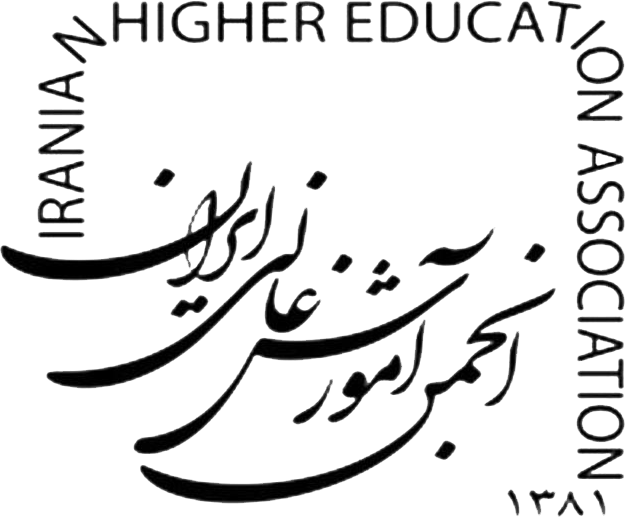Volume 15, Issue 4 (2024)
ihej 2024, 15(4): 93-115 |
Back to browse issues page
Download citation:
BibTeX | RIS | EndNote | Medlars | ProCite | Reference Manager | RefWorks
Send citation to:



BibTeX | RIS | EndNote | Medlars | ProCite | Reference Manager | RefWorks
Send citation to:
Valeh A, Afrassiabi R, SoleimanpourOmran M. Designing and validating the model of the effectiveness of organizational climate in the management of knowledge sharing among higher education academics. ihej 2024; 15 (4) :93-115
URL: http://ihej.ir/article-1-2036-en.html
URL: http://ihej.ir/article-1-2036-en.html
1- PhD student, Department of Educational Management, Faculty of Management, Bojnord unit, Islamic Azad University, Bojnourd, Iran
2- Assistant Professor, Department of Educational Management, Faculty of Management, Bojnord unit, Islamic Azad University, Bojnourd, Iran ,royaafrassiabi1398@gmail.com
3- Assistant Professor, Department of Educational Management, Faculty of Management, Bojnord unit, Islamic Azad University, Bojnourd, Iran
2- Assistant Professor, Department of Educational Management, Faculty of Management, Bojnord unit, Islamic Azad University, Bojnourd, Iran ,
3- Assistant Professor, Department of Educational Management, Faculty of Management, Bojnord unit, Islamic Azad University, Bojnourd, Iran
Abstract: (2229 Views)
Purpose: The present research was conducted with the aim of designing and validating the model of the effectiveness of organizational climate in the management of knowledge sharing among higher education academics.
Methodology: In terms of purpose, this study is applied-developmental, and in terms of the method and time period of data collection, it is a cross-sectional survey research. In order to achieve the goal of the research, an exploratory mixed-method research design was used. The statistical population of the qualitative part includes all the professors in the universities of Tehran, Sharif, Science and Technology, Amir Kabir, Khawja Nasiruddin Tousi and Tarbiat Modarres who were working there during the period of 2011 to 2023. Using targeted sampling, 10 eligible people participated in this research. The statistical population of the quantitative part included all university employees, including Sharif University of Technology, Science and Technology, Amir Kabir, Khawrazmi and Khawaja Nasiruddin. Using Cohen's power analysis rule and G*Power software, the research questionnaire was distributed among 130 of them. The data collection tools were semi-structured interviews and researcher-made questionnaires, which were validated by construct validity, convergent validity and divergent validity methods. Using Cronbach's alpha and composite reliability, the reliability of the questionnaire was also evaluated. To identify the themes of the research, qualitative content analysis was used. Also, element relationships were determined by structural-interpretive modeling, and partial least squares method was used to validate the model.
Results: Finally, 229 primary codes were extracted from the text of the interviews. By coding them, 69 sub-themes were identified and by classifying these themes into similar categories, 14 main themes were extracted
Conclusion: The results showed that the infrastructures of "knowledge management", "knowledge-oriented culture", "management factors" and "organizational atmosphere" affect knowledge management. Knowledge management has an effect on organizational learning and knowledge workers, and accordingly, internal and external knowledge sharing is realized with the knowledge sharing strategy.
Methodology: In terms of purpose, this study is applied-developmental, and in terms of the method and time period of data collection, it is a cross-sectional survey research. In order to achieve the goal of the research, an exploratory mixed-method research design was used. The statistical population of the qualitative part includes all the professors in the universities of Tehran, Sharif, Science and Technology, Amir Kabir, Khawja Nasiruddin Tousi and Tarbiat Modarres who were working there during the period of 2011 to 2023. Using targeted sampling, 10 eligible people participated in this research. The statistical population of the quantitative part included all university employees, including Sharif University of Technology, Science and Technology, Amir Kabir, Khawrazmi and Khawaja Nasiruddin. Using Cohen's power analysis rule and G*Power software, the research questionnaire was distributed among 130 of them. The data collection tools were semi-structured interviews and researcher-made questionnaires, which were validated by construct validity, convergent validity and divergent validity methods. Using Cronbach's alpha and composite reliability, the reliability of the questionnaire was also evaluated. To identify the themes of the research, qualitative content analysis was used. Also, element relationships were determined by structural-interpretive modeling, and partial least squares method was used to validate the model.
Results: Finally, 229 primary codes were extracted from the text of the interviews. By coding them, 69 sub-themes were identified and by classifying these themes into similar categories, 14 main themes were extracted
Conclusion: The results showed that the infrastructures of "knowledge management", "knowledge-oriented culture", "management factors" and "organizational atmosphere" affect knowledge management. Knowledge management has an effect on organizational learning and knowledge workers, and accordingly, internal and external knowledge sharing is realized with the knowledge sharing strategy.
Send email to the article author
| Rights and permissions | |
 |
This work is licensed under a Creative Commons Attribution-NonCommercial 4.0 International License. |




